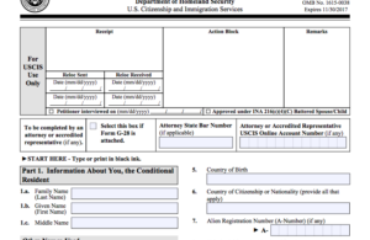Immigrants cannot independently apply for work permits also called “Employment Authorization” or Social Security Numbers unless they have some immigration status, such as being a citizen, lawful permanent resident (green card holder), temporary protected status holder, refugee, asylee, or other status that grants work authorization.
Immigrants can still pay taxes by using what is known as an “individual tax identification number” (ITIN). An ITIN is not a social security number. ITINs are issued regardless of immigration status because both resident and nonresident aliens may have a U.S. filing or reporting requirement under the Internal Revenue Code.
1. Social Security numbers
In the United States, a Social Security number (SSN) is a nine-digit number issued to U.S. citizens, permanent residents, and temporary (working) residents under section 205(c)(2) of the Social Security Act, codified as 42 U.S.C. § 405(c)(2).
Three different types of Social Security cards are issued. The most common type contains the cardholder’s name and number. Such cards are issued to U.S. citizens and U.S. permanent residents. There are also two restricted types of Social Security cards.
Social Security numbers are used to report a person’s wages to the government and to determine a person’s eligibility for Social Security benefits. You need a Social Security number to work, collect Social Security benefits, and receive some other government services.
Lawfully admitted noncitizens can get many benefits and services without a Social Security number. You don’t need a number to get a driver’s license, register for school, get private health insurance, or apply for school lunch programs or subsidized housing.
Some organizations use Social Security numbers to identify you in their records. Most, however, will identify you by some other means if you request it.
2. ITIN
Who needs an ITIN?
IRS issues ITINs to foreign nationals and others who have federal tax reporting or filing requirements and do not qualify for SSNs. A non-resident alien individual not eligible for a SSN who is required to file a U.S. tax return only to claim a refund of tax under the provisions of a U.S. tax treaty needs an ITIN.
Other examples of individuals who need ITINs include:
- A nonresident alien required to file a U.S. tax return
- A U.S. resident alien (based on days present in the United States) filing a U.S. tax return
- A dependent or spouse of a U.S. citizen/resident alien
- A dependent or spouse of a nonresident alien visa holder
What is an ITIN used for?
ITINs are for federal tax reporting only, and are not intended to serve any other purpose. IRS issues ITINs to help individuals comply with the U.S. tax laws, and to provide a means to efficiently process and account for tax returns and payments for those not eligible for Social Security Numbers (SSNs).
- An ITIN does not:
- Authorize work in the U.S.
- Provide eligibility for Social Security benefits
- Qualify a dependent for Earned Income Tax Credit Purposes
Reference: https://www.irs.gov/
https://www.ssa.gov/ssnumber/cards.htm
https://en.wikipedia.org/wiki/Social_Security_number
Massachusetts Law Reform Institute
Disclaimer: The Contents of this web site is for informational purposes and should not be considered legal advice. This web page may be considered advertising under Massachusetts Supreme Judicial Court Rules, and it does not establish an attorney-client relationship
We invite you to contact us and welcome your calls, letters and electronic mail. Contacting us does not create an attorney-client relationship. Legal advice and representation can only be obtained upon retaining our firm and the execution of a written agreement for the rendering of specific legal services. Augen Law Offices value your privacy and respect the attorney-client privilege
Augen Law Offices
Address: 21 McGrath Hwy, Suite 205, and Quincy, MA 02169
Email: kaugen@augenlaw.com
Tel: 857-526-6042
Wechat ID: augenlawyers



